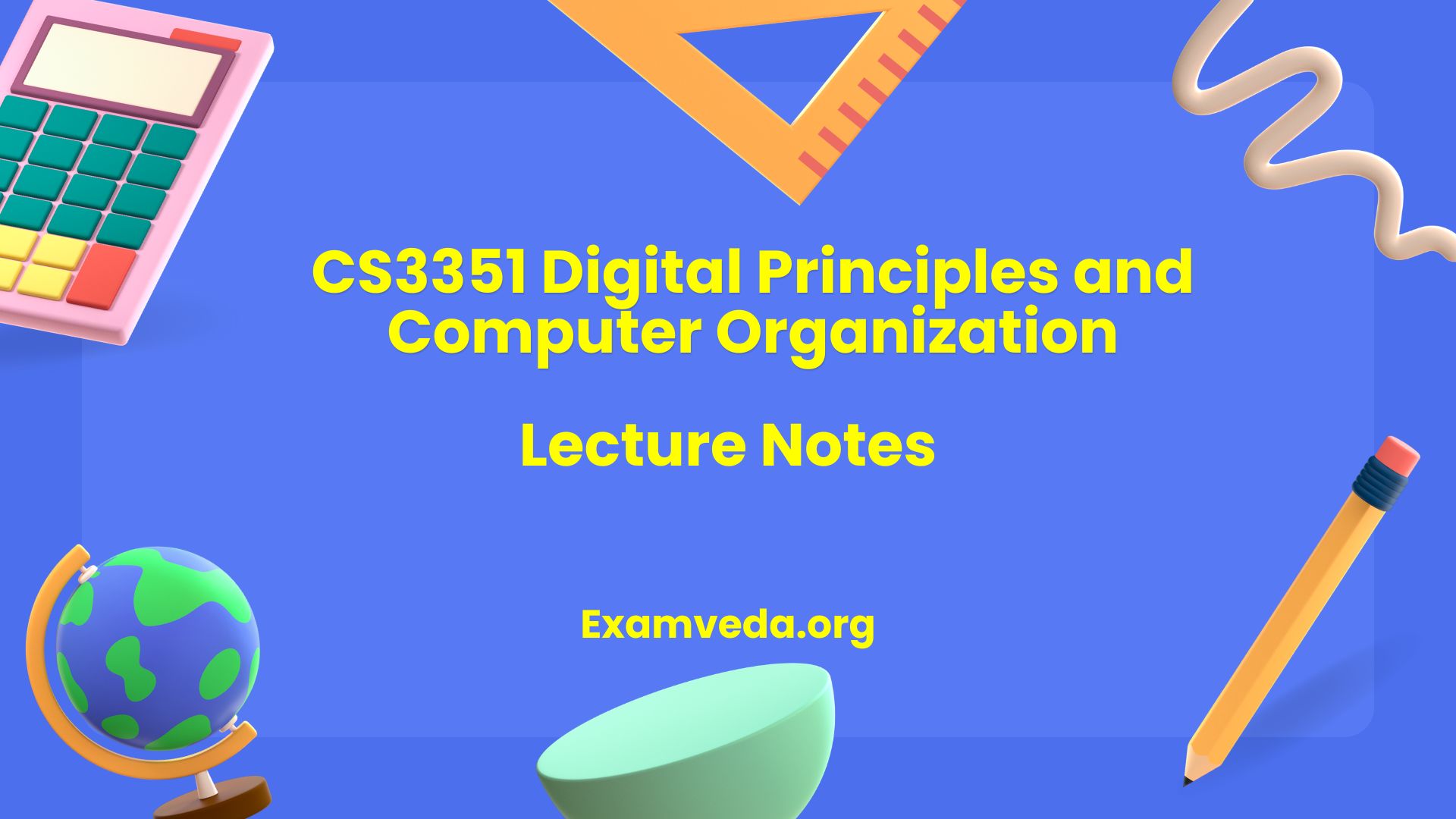CS3351 Digital Principles and Computer Organization Notes
Download MCS3351 Digital Principles and Computer Organization Books, Lecture Notes, Part-A 2 marks with answers, Part-B 16 marks Questions, PDF Books. In this Notes Very Useful for Second Year Third Semester Students.
“CS3351 Digital Principles and Computer Organization Books”
“CS3351 Digital Principles and Computer Organization Lecture Notes”
“CS3351 Digital Principles and Computer Organization Study Material”
“CS3351 Digital Principles and Computer Organization Notes”
Subject Info:
| Semester | Third Semester |
| Department | CSE |
| Year | Second Year |
| Regulation | R 2021 |
| Subject Code / Name | CS3351 Digital Principles and Computer Organization |
| Content | Local Authors Books, Lecture Notes |
Syllabus:
CS3351 Digital Principles and Computer Organization
UNIT I COMBINATIONAL LOGIC
Combinational Circuits – Karnaugh Map – Analysis and Design Procedures – Binary Adder – Subtractor – Decimal Adder – Magnitude Comparator – Decoder – Encoder – Multiplexers – Demultiplexers
UNIT II SYNCHRONOUS SEQUENTIAL LOGIC
Introduction to Sequential Circuits – Flip-Flops – operation and excitation tables, Triggering of FF, Analysis and design of clocked sequential circuits – Design – Moore/Mealy models, state minimization, state assignment, circuit implementation – Registers – Counters.
UNIT III COMPUTER FUNDAMENTALS
Functional Units of a Digital Computer: Von Neumann Architecture – Operation and Operands of Computer Hardware Instruction – Instruction Set Architecture (ISA): Memory Location, Address and Operation – Instruction and Instruction Sequencing – Addressing Modes, Encoding of Machine Instruction – Interaction between Assembly and High Level Language.
UNIT IV PROCESSOR
Instruction Execution – Building a Data Path – Designing a Control Unit – Hardwired Control, Microprogrammed Control – Pipelining – Data Hazard – Control Hazards.
UNIT V MEMORY AND I/O
Memory Concepts and Hierarchy – Memory Management – Cache Memories: Mapping and Replacement Techniques – Virtual Memory – DMA – I/O – Accessing I/O: Parallel and Serial Interface – Interrupt I/O – Interconnection Standards: USB, SATA
